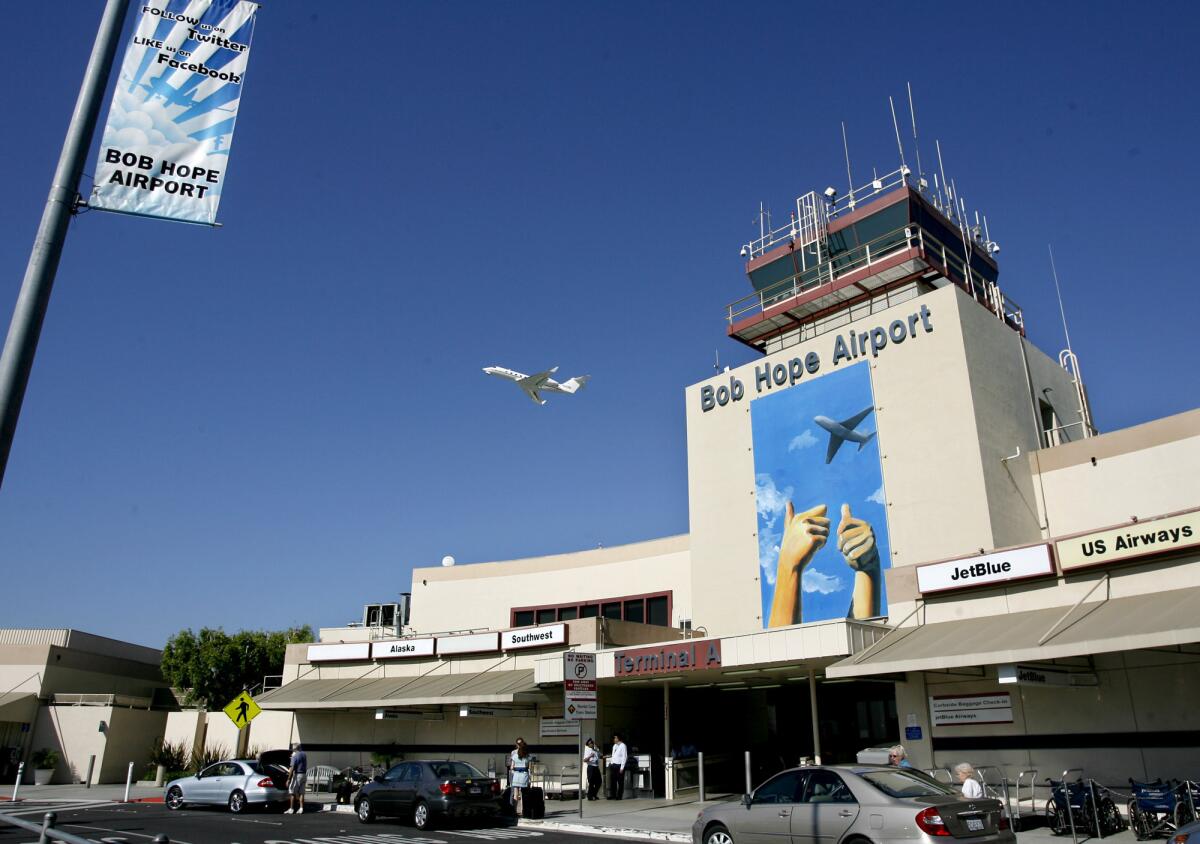Burbank amends code in city’s Airport Zone, allowing hybrid review process for planned terminal

The Burbank City Council this week approved an amendment to its zoning code in a 3-1 vote to allow for a unique process for reviewing plans for a 14-gate replacement terminal at Bob Hope Airport, which some city officials say will allow Burbank residents a greater say about the project.
The Burbank City Council this week approved an amendment to its zoning code in a 3-1 vote to allow for a unique process for reviewing plans for a 14-gate replacement terminal at Bob Hope Airport, which some city officials say will allow Burbank residents a greater say about the project.
The change also removes a potential obstacle that would likely have delayed a timeline airport officials have given themselves to complete the work necessary to get their plans on the ballot this coming November in Burbank for a required Measure B vote.
NEWSLETTER: Stay up to date with what’s going on in your neighborhood >>
Several officials said the amendment will not short-change Burbank residents on the various necessary public processes leading up to a City Council decision on the project and subsequent ballot measure. In fact, some said it offers the city the opportunity to create a way to give residents a voice in decisions years down the line.
However, Councilman David Gordon — and some local residents who frequently attend council meetings and side with Gordon — expressed concerns that it was an effort initiated by the Burbank-Glendale-Pasadena Airport Authority to expedite its work.
Gordon was also concerned about a lack of public outreach regarding the change and weak discussion when it was before the Planning Board last month.
Some council members, including Gordon and Councilman Will Rogers, have said during recent meetings that they feel no need to help expedite the process on the airport’s behalf, but Patrick Prescott, director of the city’s Community Development Department, said city officials, including the council members, had also agreed not to impede it.
Prescott said the change would be consistent with that commitment by helping to remove an obstruction. If the existing process were followed, Prescott said, it would push the airport’s timeline back.
Gordon asked if he considered the city’s ordinances an impediment, and Prescott said he did not.
The change, which will affect the city’s Airport Zone only, allows the city to create an alternative form of development review, which is the process by which the city ensures projects comply with development standards and allows for public participation.
Most large commercial, industrial and multifamily projects in the city require a development review. However, when projects require a zoning change, developers can apply for consideration as a planned development, which allows them to create development standards unique to their project in a development agreement.
The issue in the Airport Zone, according to Prescott, is that there are no development standards in place with which to ensure the airport project complies, but a zoning change, and thus planned development, is unnecessary.
Prescott said city staff could formulate development standards in a few months and, under the alternative process, include them in a development agreement that will be negotiated between the city and the airport and approved or denied during an open City Council meeting.
The amendment allows for something like a hybrid of the development review and planned development processes, allowing for development standards to be incorporated into the development agreement rather than approved as separate ordinances, which Prescott said would better accommodate the airport’s timeline.
City Atty. Amy Albano said that not only does it allow the city to create those standards, the change will allow officials to create a design review process that doesn’t exist either.
Prescott said that will give residents an opportunity to provide input on the airport’s design closer to when the airport intends to begin construction, providing the project is approved by voters, which could be more than five years from now. Under the normal development review process, that would not happen, he said.
Gordon, alone among his colleagues, opposed the change and could not be persuaded otherwise.
“I hope I’m wrong,” he said, adding that he’d “weather any criticism” of his decision.
--
Chad Garland, [email protected]
Twitter: @chadgarland
